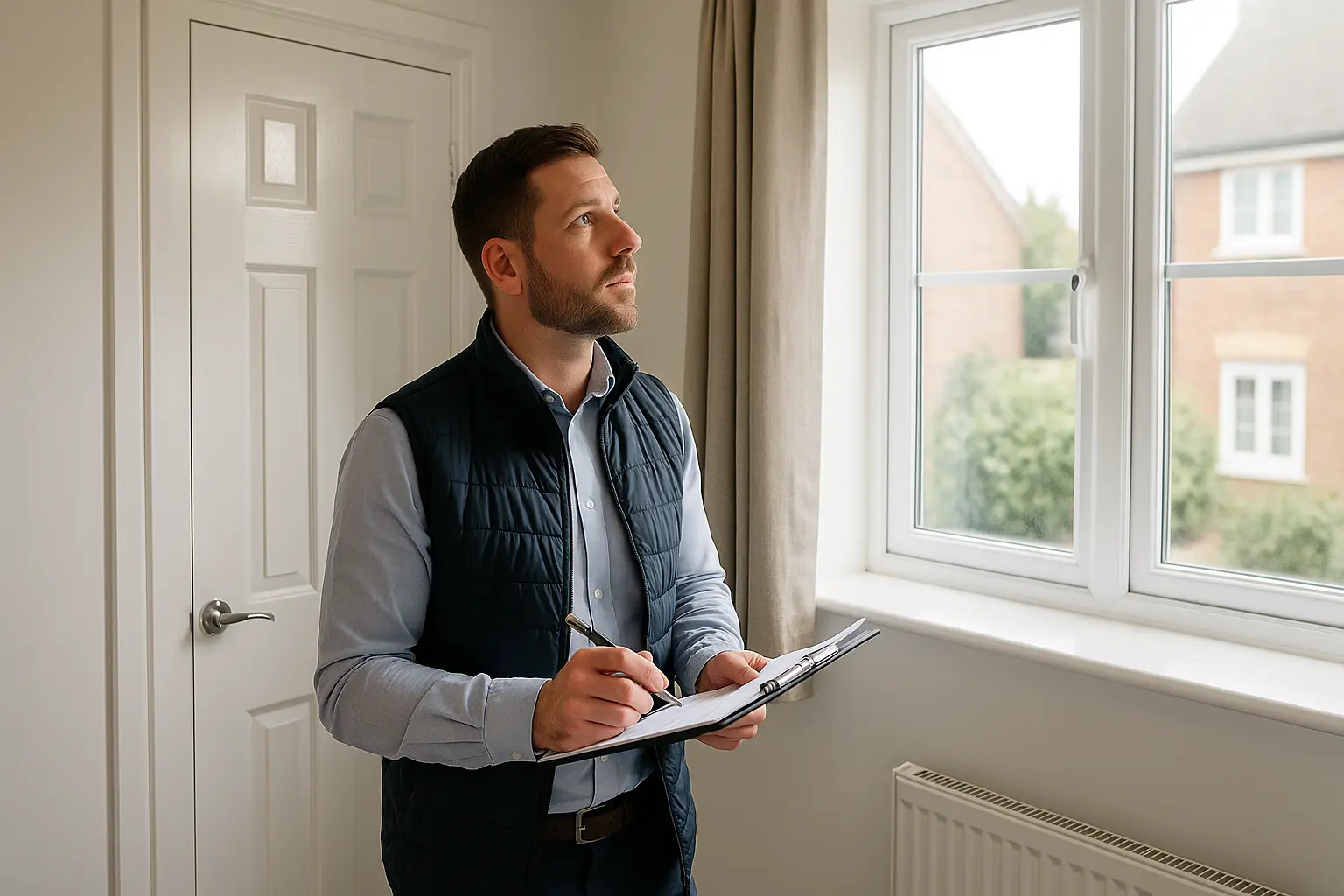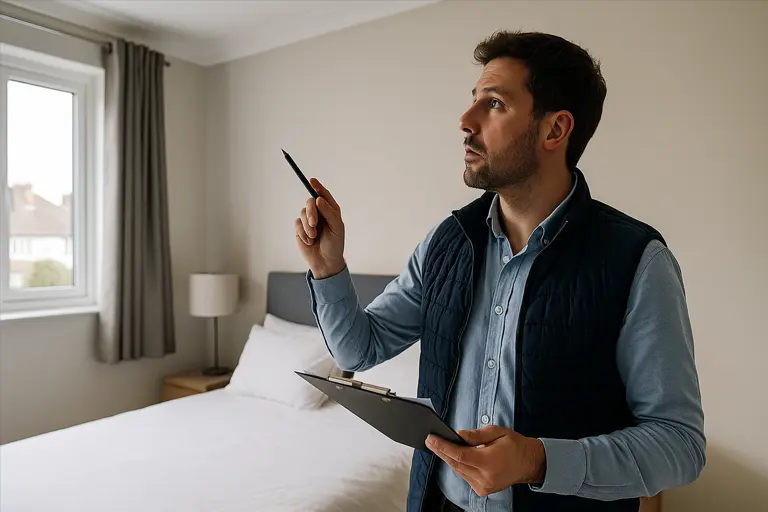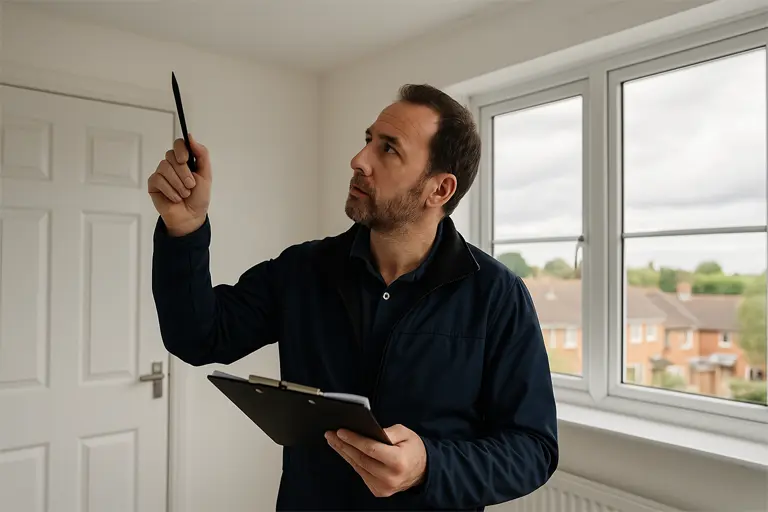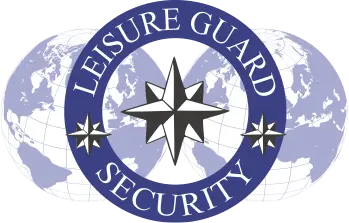When you rent out a property in the UK, you’re not just handing over keys, you’re taking on legal responsibilities. One of the most important (and often misunderstood) aspects of being a landlord is the right to inspect your property during a tenancy.
On the one hand, landlords need to ensure their investment is being looked after, that there’s no damage, illegal activity, or serious disrepair taking place. On the other, tenants are legally entitled to what’s known as “quiet enjoyment” of the property, meaning they can live in the home without unnecessary interference.
So, how do you strike the right balance?
UK law allows landlords to inspect their rental properties, but not without rules. Entering without proper notice, or too often, can breach tenancy agreements and violate your tenant’s rights. That’s where understanding the legal framework around inspections becomes critical.
Whether you’re managing a single flat or a growing portfolio, this article will walk you through:
- ✅ What the law says about inspections
- ✅ When you can legally access the property
- ✅ How often is considered “reasonable”
- ✅ What kind of notice you must give
- ✅ How to handle tenant refusals
- ✅ Best practices to protect your investment
Understanding these rights and responsibilities isn’t just about avoiding legal trouble, it’s also about building better landlord–tenant relationships, keeping your properties in good condition, and reducing the risk of costly repairs or disputes down the line.
Regular inspections are an essential part of property management, but they must be done by the book.
Let’s begin with the legal requirements that govern when and how inspections can take place.
Landlords in the UK have a legal right to access their rental properties, but that right is not unlimited. To stay compliant and avoid disputes with tenants, it’s essential to understand the core legal obligations surrounding inspections.
Here are the key requirements every landlord should know:
24 Hours’ Written Notice Is Mandatory
Under the Landlord and Tenant Act 1985, landlords must give a minimum of 24 hours’ written notice before entering a tenanted property for an inspection.
- This notice must be given in writing (email or post is acceptable).
- It should clearly state the reason for access.
- The visit must be arranged at a reasonable time of day, typically between 8am and 6pm, Monday to Friday.
Failing to give proper notice could be viewed as harassment or a breach of the tenant’s right to quiet enjoyment, potentially leading to legal action.
Inspections Must Have a Genuine Purpose
Landlords cannot enter the property at will or “drop by” unannounced. There must be a valid reason for every inspection, such as:
- Checking the condition of the property
- Carrying out repairs or maintenance
- Safety compliance (e.g. gas, electric, EPC)
- End-of-tenancy checks
- Follow-ups on previous maintenance or tenant complaints
Simply wanting to “check up on things” without cause isn’t enough. Courts will expect you to show why access was required.
There Is No Legal Limit on Inspection Frequency, But There Are Limits in Practice
While there’s no statutory cap on how many inspections a landlord can carry out per year, they must be “reasonable.”
For most landlords, a standard schedule might include:
- Once within the first 3 months of a new tenancy
- Twice per year thereafter (every 6 months)
More frequent inspections may be justified in certain situations, for example, if the property has a history of damage, neglect, or complaints from neighbours. However, excessive inspections can be considered harassment.
The tenancy agreement may also include specific clauses about inspection frequency, always check this before arranging visits.
Tenants Can Refuse Entry, Even With Proper Notice
This is where many landlords are caught out: even with 24 hours’ notice, tenants can still refuse access.
Unless there’s an emergency (e.g. fire, flood, or gas leak), you cannot force entry.
If a tenant repeatedly denies access for legitimate reasons (e.g. inspections or urgent repairs), landlords may need to:
- Mediate the situation and reschedule
- Involve the letting agent
- Seek legal advice if necessary
Document every attempt at communication to protect yourself in the event of a dispute.
Emergencies Are the Only Exception
Landlords may enter a property without notice only in an emergency, such as:
- A suspected gas leak
- Fire or smoke alarms sounding
- Serious water leak or flood
- Suspicion of immediate danger to the property or occupants
Even in these cases, landlords should document the incident and inform the tenant as soon as possible.
Access for Legal and Safety Compliance
You are allowed, and often required, to access the property for:
- Annual gas safety checks (Gas Safety Regulations 1998)
- Electrical inspections (EICR) every 5 years
- Energy performance assessments (EPC certificates)
- Legionella risk assessments
- Smoke and carbon monoxide alarm testing
You must still give reasonable notice and arrange appointments at convenient times for the tenant.
Summary Table: Landlord Legal Access Rights
| Situation | Notice Required? | Can Tenant Refuse? |
|---|---|---|
| Routine Inspection | Yes – 24 hours' written notice | Yes |
| Repairs & Maintenance | Yes – 24 hours' written notice | Yes |
| Safety Checks (e.g. Gas, Electric, EPC) | Yes – 24 hours' written notice | Yes |
| Emergency Access (e.g. fire, flood) | No | No |
| End of Tenancy Inspection | Yes – 24 hours' written notice | Yes |

While landlords have legal rights to inspect their properties, tenants also have important legal protections that must be respected. These rights are not just best practice; they are enshrined in UK housing law and tenancy regulations.
Here’s what tenants are entitled to during a property inspection:
- The Right to Quiet Enjoyment
Every tenant in the UK is entitled to the “right to quiet enjoyment” of their home. This legal principle means that tenants have the right to live in the property undisturbed and free from unnecessary interference.
Even though landlords own the property, they cannot show up unannounced, make frequent visits, or create a hostile environment.
Breaching this right can result in:
- Claims of harassment
- Compensation claims
- Legal action through a county court
- The Right to Decline Access
Tenants have the legal right to refuse entry, even if the landlord provides the correct notice.
- If the inspection time is inconvenient, the tenant can request a reschedule.
- If the landlord turns up too frequently or without notice, they are entitled to deny access entirely.
It’s essential that landlords treat access as a negotiation, not a demand. A cooperative approach preserves relationships and avoids formal disputes.
- Reasonable Timing and Convenience
Inspections must be conducted at a reasonable time of day. This is usually understood as being:
- During standard daytime working hours (e.g. 9:00 AM – 5:30 PM)
- On a weekday, not weekends or bank holidays unless agreed
What’s “reasonable” depends on the tenant’s lifestyle. For example, shift workers, parents of young children, or people with disabilities may require additional flexibility.
- Proper Notice
Tenants must receive at least 24 hours’ written notice, outlining:
- The date and time of the inspection
- The reason for the visit
- Who will be attending (landlord, agent, contractor, etc.)
It’s good practice to offer alternative times or ask the tenant to confirm what suits them best. For letting agents, an inspection reminder via email or SMS with a reply option is often helpful.
- The Right to Be Present
Tenants have the right to be at home during an inspection, and many prefer it.
- It allows them to ask questions, raise concerns, or point out maintenance issues.
- It offers peace of mind that nothing will be moved or interfered with.
Landlords cannot require a tenant to leave the property during an inspection unless there’s an immediate safety issue or legal reason.
- Respect for Privacy and Property
During inspections, landlords must:
- Respect the tenant’s space and belongings
- Avoid photographing personal items unnecessarily
- Stick to agreed areas of the property
- Avoid opening drawers, wardrobes, or private spaces unless necessary (e.g. checking for damp in a built-in unit)
A respectful inspection builds trust and encourages the tenant to report issues early, ultimately helping both parties.
- The Right to Advance Notice for Follow-Ups or Repairs
If the inspection results in a need for further work, such as repairs or safety checks, the same notice and timing rules apply.
- Each contractor or visit must be scheduled with notice
- Tenants can ask for work to be done at a convenient time
- Unexpected or repeated visits without notice may be deemed harassment
Summary Table: Tenant Rights During Inspections
| Tenant Right | What It Means |
|---|---|
| Quiet Enjoyment | The right to live without unnecessary disturbance or frequent landlord visits. |
| Right to Refuse Entry | Tenants can legally deny access unless it’s an emergency. |
| Proper Notice | Landlords must give at least 24 hours’ written notice before visiting. |
| Reasonable Timing | Inspections should be during daytime hours and at convenient times for the tenant. |
| Right to Be Present | Tenants can remain in the property and accompany the landlord during the inspection. |
| Privacy Protection | Landlords must respect personal belongings and avoid unnecessary intrusion. |
| Notice for Repairs or Follow-Ups | Tenants must be given notice for any future access, even for repairs identified during inspection. |
How Often Should Landlords Inspect Rental Properties?
There’s no law in the UK that sets a fixed number of times a landlord can inspect a property. However, inspections must strike a careful balance between maintaining the property and respecting the tenant’s right to privacy and quiet enjoyment.
So how often is “reasonable”?
📆 Typical Inspection Frequency
Most landlords or letting agents follow this general schedule:
- New Tenancy (First 3–6 Months):
One initial inspection shortly after move-in, usually within the first 3 months, to check for teething issues. - Mid-Tenancy Inspections:
One inspection every 6 months is widely considered best practice. - End of Tenancy:
A detailed inspection is carried out to assess the condition and determine any deposit deductions.
🤝 Customising to the Tenancy
The frequency can also depend on:
- Tenant Track Record:
Long-standing tenants with no history of issues may need less frequent visits. - Property Type:
Older properties may require more regular monitoring for damp, structural issues, or wear and tear. - Risk Factors:
If you suspect illegal activity or have concerns about damage, you may need more frequent checks, but always with proper notice and justification.
🧾 What’s Considered “Too Often”?
If inspections are:
- Monthly or more frequent without cause
- Unannounced or intrusive
- Conducted during unsociable hours
They may breach the tenant’s legal rights and could be interpreted as harassment. This can result in:
- Complaints to the local authority
- Claims for compensation
- Tenants refusing access entirely
🔐 Tip: Formalise in the Tenancy Agreement
It’s a good idea to specify inspection frequency in the tenancy agreement. This provides clarity for both parties and helps avoid disputes.
A typical clause might read:
“The landlord or their agent may carry out inspections no more than twice per year with at least 24 hours’ written notice, to be conducted at a mutually agreeable time.”
📊 Summary Table: Recommended Inspection Schedule
| Inspection Type | Recommended Frequency | Purpose |
|---|---|---|
| Inventory Check | Before tenancy begins | Documents the property's condition and contents at the start of the tenancy. |
| Check-In | On tenant move-in day | Walkthrough with the tenant to confirm the inventory and address any concerns. |
| Mid-Term Inspection | Every 3–6 months | Checks ongoing maintenance, property condition, and tenant compliance. |
| Check-Out | When tenancy ends | Assesses changes or damage compared to the initial inventory to resolve disputes. |
| Safety & Compliance Checks | Annually (or as required) | Ensures fire alarms, gas, electrical systems, and legal safety requirements are met. |
professional Landlord Property Inspections
Stay compliant, avoid costly surprises, and protect your property from just £80 + VAT.
Get started with a free consultation today.
What Happens If a Tenant Refuses Access?
Tenants in the UK have a legal right to quiet enjoyment of their home, meaning they’re entitled to live without unnecessary interference, even from their landlord. So, what happens if a tenant refuses access for a property inspection, even with proper notice?
Let’s break it down.
⚖️ Is Refusal Legal?
Yes, under normal circumstances, a tenant can legally refuse access to their home, even if you’ve:
- Given 24+ hours’ written notice
- Stated a valid reason (e.g. routine inspection or maintenance)
- Scheduled the visit at a reasonable time
Their consent is required unless it’s an emergency, such as:
- A fire
- A serious water leak
- Gas smell or risk to life/safety
In emergencies, landlords may enter without consent to prevent harm.
🤔 Why Might Tenants Refuse?
Refusals typically happen due to:
- Poor communication or misunderstanding of their rights
- Fear of landlord harassment or repeated unannounced visits
- Previous bad experiences with agents or contractors
- Health or personal circumstances (e.g. illness, trauma, hoarding)
Understanding the reason can help you resolve the issue more diplomatically.
📬 What Can a Landlord Do?
If a tenant refuses access, here’s how to respond professionally:
- Try to Reschedule
Offer a different time or date that works better for the tenant. Show flexibility. - Explain the Purpose Clearly
Provide context. For example, “This inspection helps us make sure the property remains safe and avoids issues that could affect your deposit or comfort.” - Confirm the Tenancy Agreement Terms
If inspections are agreed upon in the tenancy agreement, remind the tenant gently of their contractual obligations. - Put It in Writing
Send a formal letter or email noting the missed inspection and your attempt to gain access. This shows you’ve acted reasonably if the issue escalates. - Seek Mediation if Needed
If access continues to be denied and you suspect property damage, illegal use, or neglect, you may involve:- Letting agents
- Professional mediators
- Legal advice or court action (as a last resort)
🚫 Avoid Unlawful Entry
Even if frustrated, never enter the property without consent (unless in an emergency). Doing so may be classed as harassment under the Protection from Eviction Act 1977, exposing you to legal claims and fines.
🛑 Summary: What to Do If Access Is Refused
| Action | Why It Matters |
|---|---|
| Reconfirm Notice | Ensure that the correct written notice was served with at least 24 hours’ notice and for a reasonable time. |
| Communicate with Tenant | Discuss the reason for refusal and attempt to resolve the issue amicably. Respect their right to quiet enjoyment. |
| Reschedule the Visit | Offer an alternative date and time that suits both parties to maintain cooperation and compliance. |
| Document the Refusal | Keep a record of the attempted access and tenant response in case of future disputes or legal matters. |
| Seek Legal Advice | If refusal persists, contact a legal advisor or letting agent to understand your rights and next steps. |
Legal Risks of Improper Inspections or Unlawful Entry
For landlords, understanding the limits of your rights is just as important as knowing your obligations. While routine inspections are essential, failing to follow the correct procedures can result in serious legal consequences, and damage your reputation as a responsible landlord.
Here’s what you need to know.
🚪 Entering Without Permission: What’s the Risk?
Under UK law, tenants have the right to quiet enjoyment of their home under both common law and statutory law. This means you cannot enter the property without:
- Providing at least 24 hours’ written notice
- Gaining explicit permission from the tenant
- Scheduling the visit during reasonable hours
If you don’t follow these rules, you could be guilty of unlawful entry, even if you own the property.
🧾 The Legal Backing
Two major pieces of legislation protect tenants from unapproved access:
- Protection from Eviction Act 1977: States that any action that interferes with a tenant’s right to quiet enjoyment may be considered harassment. Unlawful entry is one such action.
- Housing Act 1988: Reinforces the tenant’s right to live in the property without interference.
Violations can result in:
- Civil penalties
- Compensation orders
- Legal injunctions
- Criminal charges in extreme cases
🧍♂️ Harassment Claims: A Hidden Danger
Repeated or aggressive attempts to gain entry, even with notice, can be classed as harassment if they are perceived as unreasonable. Examples include:
- Sending multiple messages demanding access
- Showing up without confirmation
- Using spare keys without permission
- Entering when the tenant is away
Tenants can pursue legal action through their local council, who may investigate and prosecute offending landlords.
💼 Impacts on Eviction or Dispute Resolution
Improper inspection conduct can backfire if you ever need to evict a tenant or resolve a dispute. Judges often look at the landlord’s behaviour during the tenancy, so entering unlawfully or failing to respect rights could:
- Undermine your eviction case
- Reduce or void any claims for property damage
- Result in a counterclaim from the tenant
Read our article: What Should You Do If You Suspect a Cannabis Farm in Your Property?
How to Stay on the Right Side of the Law
| Compliance Step | Why It Matters |
|---|---|
| Provide Written Notice | Legally required under the Housing Act; ensures tenant is informed and consent is obtained. |
| Schedule at Reasonable Hours | Avoids disputes and maintains tenant rights to quiet enjoyment. |
| Clearly State the Reason for Entry | Helps build trust with tenants and shows the visit is for a legitimate purpose. |
| Respect Tenant’s Right to Refuse | Prevents legal challenges and maintains good landlord-tenant relationships. |
| Keep Records of All Communication | Protects you in the event of complaints or disputes. |
| Include Inspection Terms in Tenancy Agreement | Sets clear expectations from the start and supports legal access if needed. |
Landlord Property inspection Service
Stay compliant, avoid costly surprises, and protect your property from just £80 + VAT.
Get started with a free consultation today.
Best Practices for Landlord Inspections in the UK
A legally compliant inspection doesn’t just protect your investment; it helps foster trust with tenants and avoids unnecessary disputes. Whether you’re a new landlord or managing a growing portfolio, following proven best practices will help ensure your inspections are smooth, professional, and legally sound.
📆 1. Set a Routine Inspection Schedule
Aim for one to two inspections per year, unless more are justified by the property’s condition or tenancy issues. Include this schedule in your tenancy agreement, so tenants are aware from the start.
Why it matters: A predictable and reasonable frequency prevents claims of harassment and ensures you spot issues early.
📝 2. Always Give Written Notice (24+ Hours)
Send a formal written notice via email, letter, or your property management platform. Include:
- Date and time of the proposed inspection
- Purpose of the visit
- Contact details for queries or rearrangement
Tip: Tenants must legally give consent, so wait for confirmation before entering.
🕒 3. Choose a Reasonable Time of Day
Inspections should take place between 9am and 6pm, Monday to Saturday. Avoid early mornings, late evenings, or public holidays unless the tenant specifically agrees.
Why it matters: Reasonable timing respects the tenant’s privacy and daily routine.
📋 4. Prepare an Inspection Checklist
Bring a structured checklist to cover all key areas. This ensures consistency and helps document the condition of:
- Walls, floors, and ceilings
- Electrical sockets and appliances
- Plumbing, leaks, and damp
- Garden or outdoor space (if applicable)
- Attic/loft areas (especially in cannabis risk areas)
Pro tip: Take timestamped photos of any concerns.
🗣️ 5. Maintain Professional, Respectful Conduct
Introduce yourself clearly, explain the process, and allow the tenant to accompany you. Avoid commenting on personal belongings and keep the visit focused on property condition.
Why it matters: Creates a positive impression and reduces tenant anxiety or defensiveness.
🧾 6. Document Everything
After the visit, create a written report summarising:
- Overall condition
- Any maintenance needed
- Any breaches of tenancy
- Photographic evidence
Provide the tenant with a copy and store one for your records.
🔄 7. Follow Up Promptly
If repairs are needed, book them within a reasonable timeframe and keep the tenant informed. Failure to act on findings can undermine your position later.
Read our article: Will insurance cover damage caused by a cannabis farm in my rental property?
Summary Table: Landlord Inspection Best Practices
| Best Practice | Description |
|---|---|
| Schedule in Advance | Agree on inspection dates early and confirm with tenants to avoid last-minute issues. |
| Document Everything | Use photos, checklists, and written notes to keep a reliable record of inspections. |
| Be Respectful and Professional | Maintain professionalism and respect the tenant’s space to foster trust and cooperation. |
| Use a Standardised Checklist | Ensures consistent inspections and helps spot trends across different properties. |
| Follow Up on Issues Promptly | Show tenants that concerns are taken seriously and resolve any problems quickly. |
| Keep Tenants Informed | Share findings and next steps with tenants to keep communication clear and transparent. |
By implementing these best practices, you’ll reduce your risk, strengthen tenant relations, and improve the long-term value of your property.
Proactive Inspections Are Smart, Safe, and Essential
Rental property inspections aren’t just a legal formality; they’re a vital part of responsible property management. By understanding and respecting the legal boundaries, landlords can protect their investments, reduce maintenance costs, and build stronger relationships with tenants.
Whether you manage a single buy-to-let or a large portfolio, routine inspections help you detect problems before they become liabilities, from damp patches and dodgy wiring to more serious issues like unauthorised subletting or illegal activity.
The key is balance: respecting tenant rights while asserting your legal entitlement to check on your property.
📞 Need Help with Professional Property Inspections?
At Leisure Guard Security, we take the stress out of rental inspections.
Our Landlord Property Inspection Service is trusted by private landlords, letting agents, housing associations, and councils across the UK. We offer:
✅ Inventory, Check-In, Mid-Term & Check-Out Inspections
✅ Detailed reports with photographic evidence
✅ Legally compliant processes
✅ Discreet, respectful, trained professionals
💼 Book Your Inspection Today
Whether you’re a first-time landlord or managing dozens of properties, we can help you stay compliant, reduce risk, and protect your assets.
📍 Serving landlords and agents across Greater Manchester and Blackburn.
Frequently Asked Questions About Landlord Property Inspections
How often can a landlord inspect a rental property in the UK?
There’s no legal limit, but inspections must be reasonable. Most landlords inspect once every 3 to 6 months to stay compliant and avoid infringing on the tenant’s right to quiet enjoyment.
Do landlords need permission to enter a rental property in the UK?
Yes. Landlords must provide at least 24 hours’ written notice and obtain tenant consent unless there’s an emergency.
Can a tenant legally refuse a landlord entry for inspection?
Yes, tenants can refuse access if they believe the notice was insufficient, the timing unreasonable, or the landlord has no valid reason. Persistent refusal without cause may require mediation.
What happens if a tenant keeps refusing property inspections?
Landlords can document the refusals and seek legal advice or mediation. If the refusals affect safety or legal obligations, they may pursue court intervention or Section 8 eviction.
What’s considered a 'reasonable time' for inspections in the UK?
Reasonable hours are typically between 9 am and 6 pm on weekdays. Avoid early mornings, evenings, weekends, or bank holidays unless agreed.
What should landlords check during a property inspection?
Key areas include signs of damage, maintenance issues, cleanliness, smoke/CO alarms, pest signs, and compliance with fire, gas, and electrical safety.
Can a letting agent carry out inspections on behalf of a landlord?
Yes, letting agents often conduct inspections and should also follow the 24-hour notice rule and act professionally on behalf of the landlord.
Is it a legal requirement for landlords to carry out inspections?
Not explicitly, but landlords have a legal duty to maintain a safe and habitable property. Inspections help ensure compliance and protect against liability.
How should landlords document a rental property inspection?
Use dated reports, checklists, and photographs. Digital inspection reports with signatures offer the best legal protection.
Can a landlord inspect a property without the tenant present?
Yes, with notice and consent. However, it’s good practice to offer the tenant the option to be present to avoid disputes.
Do landlords need to do inspections at the end of a tenancy?
Yes. Final inspections help assess property condition for deposit deductions and avoid disputes. A pre-checkout inspection is also recommended.
Are virtual inspections allowed in the UK?
Virtual inspections are acceptable for tenant communication or remote updates but do not replace physical inspections needed for legal and maintenance purposes.



